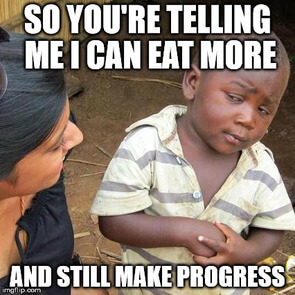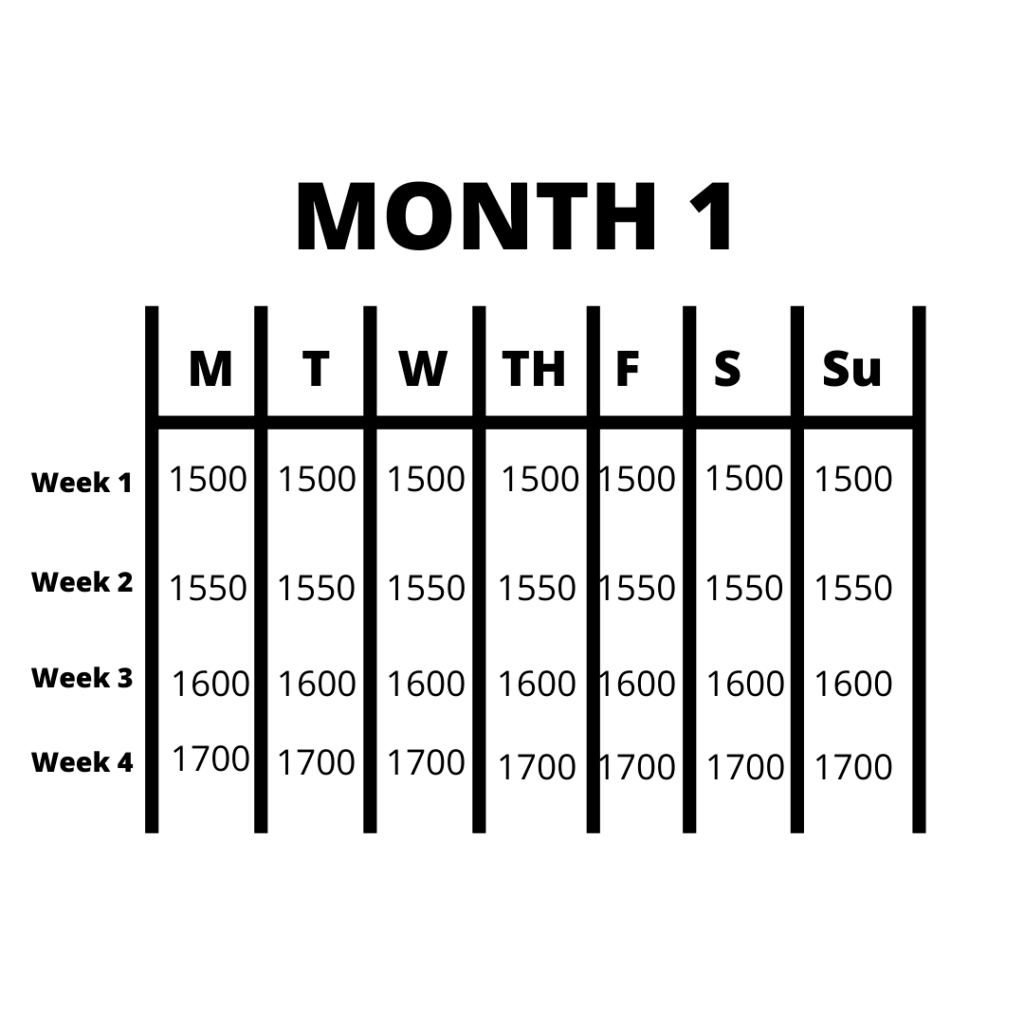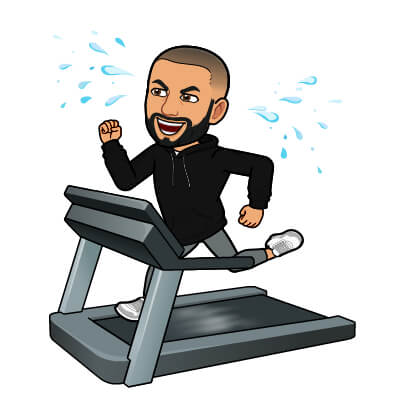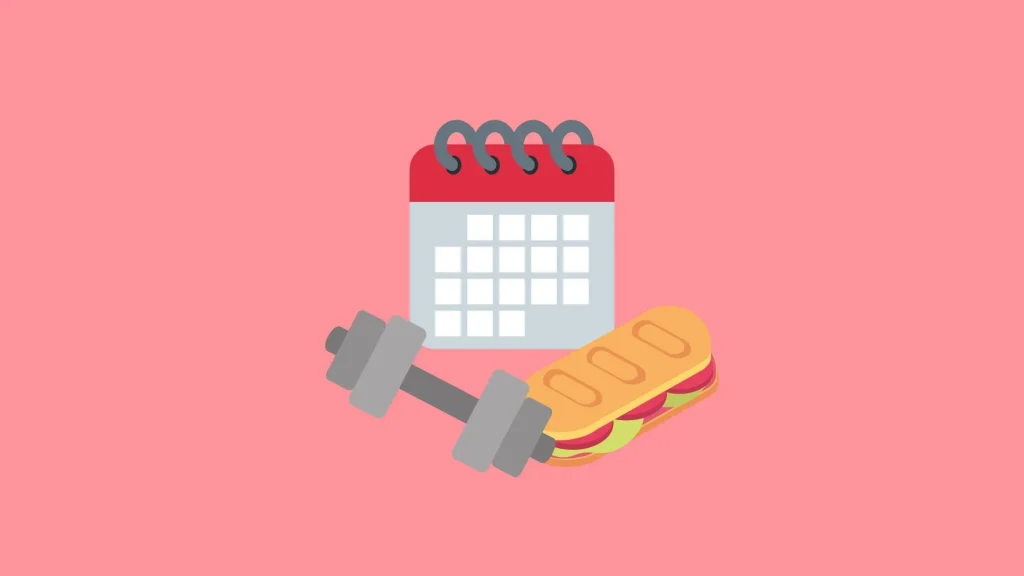In order for us to implement reverse dieting properly, first, we have to know what it is. In this article, I am going to explain to you what reverse dieting is, how to implement it when you should do it, and some helpful tips for those who want to get the most out of this process.
What is Reverse Dieting?
Reverse dieting may only be a term used in the bodybuilding community, but it is becoming more common as a tactic to help those who have crash-dieted themselves on too little calories, too quickly.
Bodybuilders have been using reverse dieting for quite some time. When an athlete would get on stage, usually their calories would have to be so low that they are actually malnourished, tired, and have hormonal issues. A reverse diet would be used post-show to help the athlete slowly add calories back into their diet whilst gaining minimal body fat.
The theory here is called METABOLIC ADAPTATION, and without boring the crap out of you, it basically means your body will adjust to the calories that you give it and stop gaining or losing weight.

How Does it Work?
Essentially you are just adding calories back into your diet, SLOWLY, until you reach a point of homeostasis. For example, one of my online weight loss coaching clients, Jim, was 170 pounds. Jim came to me regularly eating 1400 calories. Jim wanted to still lose another 10 pounds, but there was no way to take his calories any lower without serious health risks, and he was already doing cardio 5 days a week. What I told Jim is that we needed to implement a REVERSE DIET. He was skeptical, but once I explained the benefits and how in the long run he would be able to eat much more food, and that dieting would be much more sustainable and enjoyable, he was ALL IN.
The only problem was THIS: Jim had been yo-yo dieting for the last 9 years. He had tried every diet imaginable, and had been on this low calorie diet for over 6 months. This means that this whole process was going to take quite a while, and he was okay with that.
Over the next 5 months of working with Jim, we increased his food to over 1,000 calories, and he only gained 5 pounds. Some of that weight could have been attributed to new muscle growth as well due to his consistency of strength training. So, now that we increased his calories over to 2400, he could then lose his 10 pounds (now 15) easily and sustainably.
The most important thing is that we want to go SLOW. We only increased his intake by 50-100 calories added to his daily calorie intake week by week.
For example:

Do I have to TRACK my calories?
Yes, you will want to track calories here. As a matter of fact, this is why so many people fail with reverse dieting. They fail to track their calories accurately, and end up gaining too much weight too quickly or end up giving up too soon. I suggest you invest in a food scale, and try to be as diligent and accurate as possible.
Remember, this is a marathon not a SPRINT.
This process can last anywhere from 12 weeks to an entire year. Be patient, stick with it and you will be happy that you did.
Your body is extremely adaptive, and will adapt to the calories you give it. You may gain some weight in the beginning, but eventually you will level out and your metabolism will adapt.
This is important for a couple reasons:
- You can now diet on MUCH higher calories, and take your TIME.
- Your workouts and your overall energy will be MUCH more optimal.
- Your sex drive and hormones will regulate and you will be feeling INCREDIBLE.

What about CARDIO?
If you are someone who likes to intensely train cardio frequently, you may have to taper cardio down. You may need some balance when it comes to your lifestyle. Not only is doing 5-10 hours a week of cardio very taxing on the body, it also just takes a tremendous amount of time.
If you are weight training 5 days a week and then doing cardio for an hour each day, that is 10 hours a week you are spending in the gym, and most people who work full-time jobs and have families just can’t sustain that. Give yourself a break, and give the cardio a rest. You can always amp up cardio when dieting down, but during the reverse diet it should be pretty minimal. This is a great time to strength train and really give your body the stimulus to grow new muscle.
When should you do a reverse diet?
You should think about doing a reverse diet if:
- Your calories are extremely low such as 1200 calories a day. You can’t really sustain this amount of calories unless you weigh about 100 pounds and are 5’0. Even so, that Is not enough calories for 99% of people.
- You have been yo-yo dieting, and no matter what you do you just can’t seem to lose weight. It may be because your metabolism has absolutely CRASHED, and it is time to reverse diet yourself out of this hole.
- You are done with a fat loss program, and would like to maintain your progress with VERY minimal fat gain.
Are there any risks involved or any reasons why this wouldn’t work for me?
- Consistency- if you are not consistent it will not work because the calories are increased so minimally. You must weigh your food and you must be super accurate. Even doing it for a couple weeks and taking days off etc…will hinder your progress and possibly cause you to give up.
- If you have been dieting for years, your body will be much more sensitive to calorie jumps. You will have to be even more patient because it may take even longer. Make smaller jumps and be patient, it will be worth it in the long run.
You may gain weight QUICKLY, but your body WILL adapt. IF you are back to your original bodyweight, but now you are eating MUCH more, that’s still a win. Usually if this happens, you have a VERY long diet history! This is extremely important if you have been dieting on your own and not being patient, you have probably cut your calories too much too quickly. Not only will this lead to binge eating, but your calories are so low that you cannot drop them anymore without damaging your hormones and severely cutting your energy levels. If you are a chronic yo-yo dieter, this is going to take longer than you want it to.
If you reverse diet for 12 weeks, but you have been yoyo dieting for 12 years, it WILL TAKE SOME TIME. You may be able to sprinkle in some re-feeds here and there, but you will have to be extremely patient.
This is a long-term investment, think of it as a long-term stock investment. You are putting money away so that in the long term you can take more money out.

